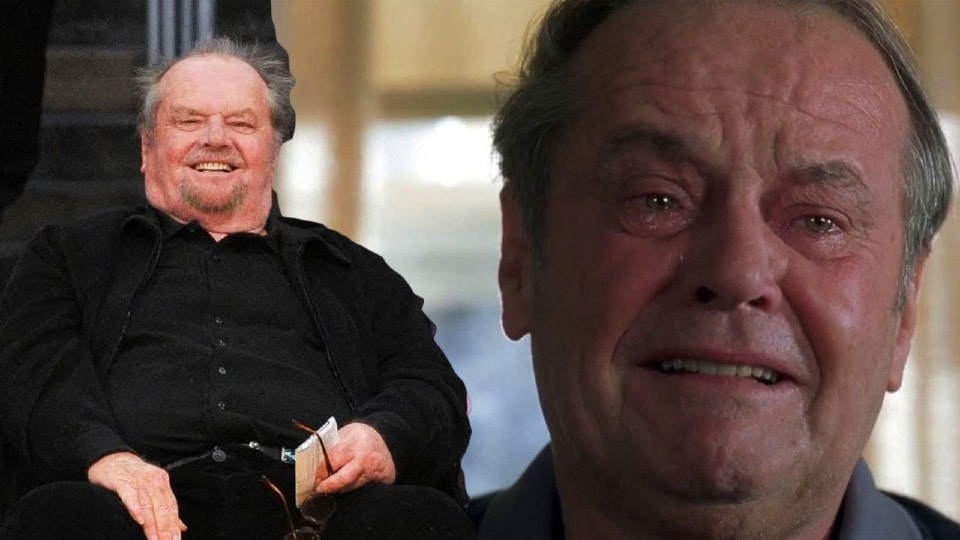American actor and director Jack Nicholson have had a fruitful career spanning more than 50 years. However, the celebrity hasn’t been seen much lately, and there have been rumors that the star’s health is deteriorating.
The actor has and will continue to be remembered in history as one of Hollywood’s greatest as the most nominated male actor in Academy Award history. But now that he is 84 years old, the celebrity seems to have vanished from the spotlight, and there are rumors that he is not in the best of health. In fact, a source close to the actor allegedly informed Radar that the celebrity is passing out at his Los Angeles estate in his “sad last days.”
Radar was informed by a close acquaintance that Jack “doesn’t leave his house anymore,” with his son and daughter taking over the caregiving duties, despite their being no official confirmation from the celebrity or his spokespeople.

The insider source went on to add that the Mulholland Drive neighborhood was quite close-knit and that everyone was concerned about him.
He is in good physical condition, but his mind is lost. It makes me very sad to watch an actor with Jack’s brilliance end his career in this manner.
A buddy of the celebrity also provided feedback to Closer Weekly after he made a rare comment in the wake of basketball great Kobe Bryant’s tragic passing.
Jack made the following remark following the horrific helicopter crash that claimed the lives of Kobe and eight other people: “I was used to seeing and talking to Kobe… You die from it.
“We’ll miss him and think of him constantly.”
Then, after living his life to the fullest, a source claimed that the celebrity is “making up for lost time” with his family and kids.
Although the star’s last movie appearance was in 2010, it is safe to infer that he is no longer actively involved in the entertainment business that helped him achieve such fame, even though fans are left wondering what is actually going on with the celebrity.
Memory loss and forgetfulness grow increasingly prevalent as we become older. Bupa argues that as long as people are given enough time to learn and retain things, natural age-related memory loss usually does not cause people too much trouble.
Memory loss can occasionally be the first sign of a more serious disorder, like dementia.
According to the Mayo Clinic, dementia refers to a collection of symptoms that not only damage memory but also thinking and social skills. The severity of these symptoms makes it difficult for a person to go about their everyday activities.

Dementia comes in many various forms, with Alzheimer’s disease being the most prevalent.
The following are some of the signs of dementia, according to the NHS:
difficulty speaking or finding the right words
difficulty with reasoning or problem-solving difficulty with complex tasks difficulty with visual and spatial abilities, such as getting lost when driving
Planning and organizing challenges
coordination and motor skills are difficult
Disorientation and confusion.
Unfortunately, dementia patients may experience psychological disturbances like despair, anxiety, paranoia, and hallucinations as a result of their symptoms.
Approximately 900,000 people in the UK currently suffer from dementia. And according to the Alzheimer’s Society, by 2040, this number is expected to increase to 1.6 million.
Despite the condition’s extensive list of symptoms, early detection allows for a condition’s progression to be slowed down, which may allow the patient to preserve mental function for a longer period of time.
Delay the onset of dementia by five years, and the number of dementia-related fatalities would be cut in half, saving 30,000 lives annually.
The NHS advises that maintaining your overall health is crucial, particularly after receiving a dementia diagnosis.
Even after receiving a dementia diagnosis, you may safeguard your mental and physical health by engaging in regular exercise, eating a healthy, balanced diet, getting enough sleep each night, and talking to your doctor if you notice any symptoms.
The NHS offers the following advice to persons coping with dementia:
Establish a routine
Post a weekly schedule on the refrigerator or the wall in the kitchen, and try to plan activities for when you feel better (for example, in the mornings)
Put your keys in a visible location, like a big bowl in the hallway.
Keep a phone near the phone with a list of useful numbers, especially emergency contacts.
Set up direct debits for your regular expenses so that you never forget to pay them.
Use a dosette box, also known as a pill organizer, to help you remember which medications to take when (your pharmacist can help you get one)
Make sure your home is secure and safe for those with dementia.




